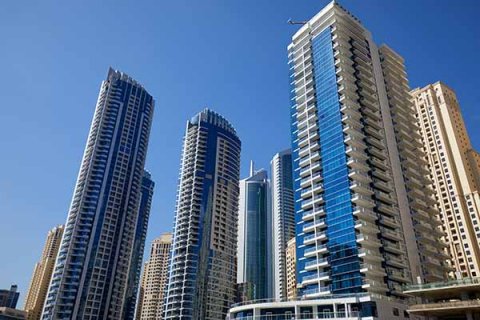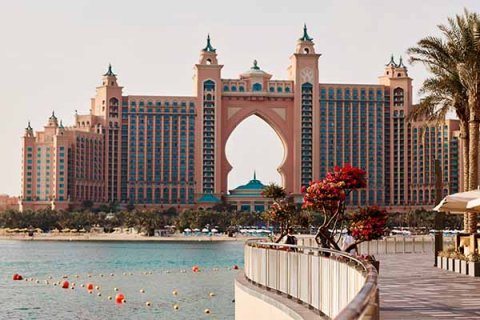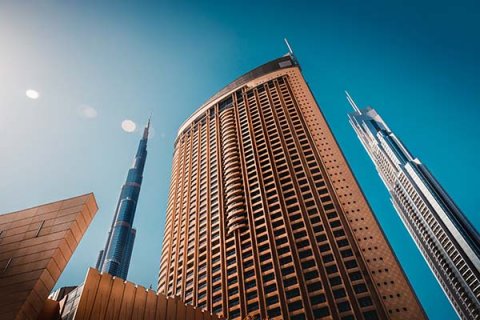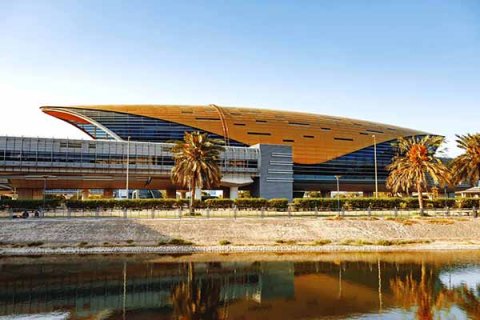Dubai is one of the most sought-after destinations for tourism and business, so real estate is regularly bought and sold here. Many of those who are interested in moving to Dubai are wondering whether to rent an inexpensive apartment in Dubai or buy a home using a mortgage. Thousands of expats embrace the second option. Let’s find out why below.
Investors can make capital out of owning a property. You can always cash in on renting it out or reselling it. Dubai has witnessed between 6% and 10% rental yield on the residential property in 2021. So homeowners are at a distinct advantage when it comes to mortgage payments and covering their living expenses.
In this article, we look into how mortgages work in the UAE and what the requirements are to get a home loan as a foreigner.
Contents
- Current situation in Dubai’s real estate market
- Types of mortgages in Dubai
- Applying for a mortgage in UAE
- Where non-residents can buy a property?
- Steps to obtain a UAE mortgage by non-residents
- Reasons for a rejected mortgage application
- Factors that determine your mortgage chances
- We will help you get a mortgage in Dubai
Current situation in Dubai’s real estate market
According to Mortgage Finder, the number of mortgage sales registered in Dubai in the first three quarters 2021 exceeds the total mortgage sales in 2020. The key factor that attracts foreign property hunters is low interest rates. Thanks to these low rates, 83% of mortgage sales were made by people buying property in the UAE for the first time.
Villas and townhouses were 63% of mortgage sales while apartments made 35%, the last 2% were land plot, commercial and other types of properties.
Types of mortgages in Dubai
In UAE’s Dubai, there are several types of mortgages that foreign nationals can qualify for.
- Fixed-rate mortgage. A fixed-rate mortgage has an interest rate, which is determined prior to signing a home loan agreement and which remains unchanged throughout the loan term.
- Floating rate mortgage. Other than a fixed-rate mortgage, a floating rate mortgage has a variable interest rate charged on the outstanding balance. This mortgage option can be favorable, however, a borrower needs to be ready for fluctuating loan repayments.
- Discounted rate mortgage. A discounted rate mortgage has the initial rate starting at 0.5 percent. However, it can rise significantly and become less attractive than even a fixed rate.
- Capped mortgage. A capped mortgage has a variable rate with an interest rate ceiling above which it cannot rise.
- Remortgage. This type of mortgage enables you to remortgage into a loan with more favorable terms.
- Offset mortgage. An offset mortgage has emerged recently but is growing in popularity. It links your mortgage to your savings account, enabling you to contribute the interest earned on savings towards paying off your mortgage.
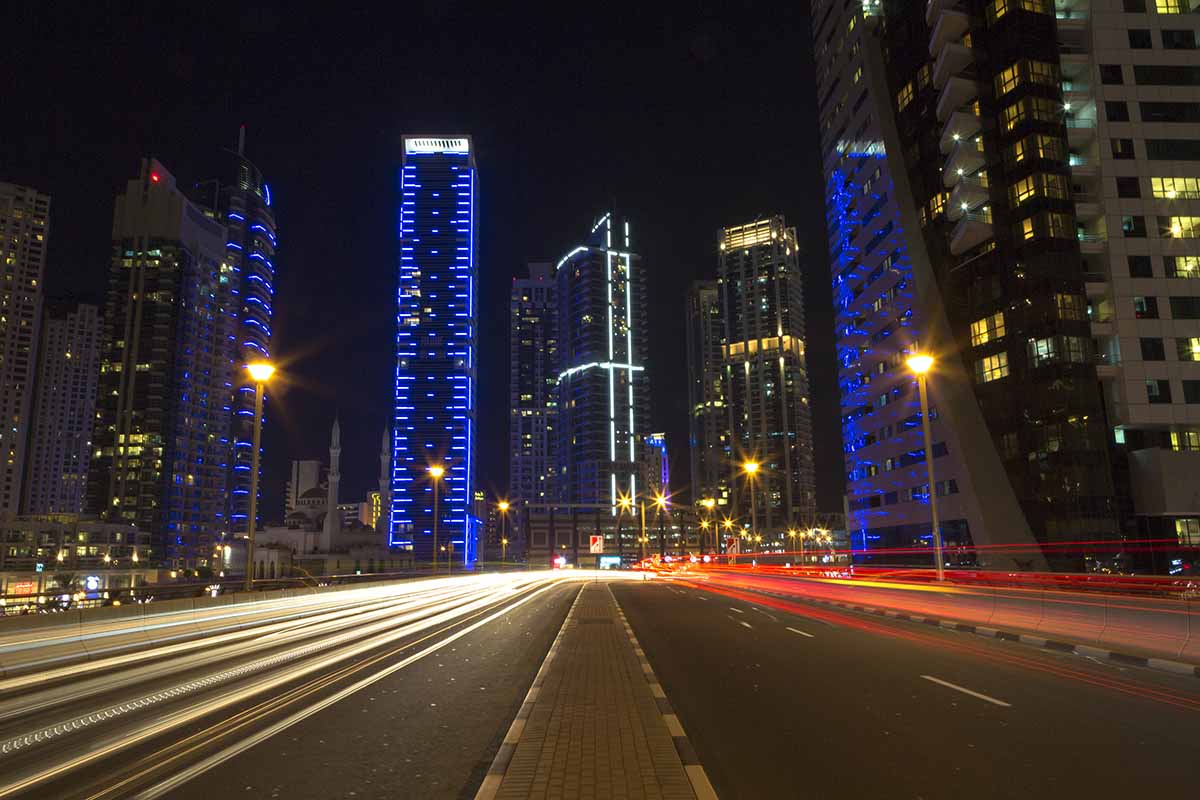
Applying for a mortgage in UAE
Buying real estate with the UAE through a mortgage is not an easy feat for a foreigner. Many banks will not approve a home loan to a foreign national, citing domestic policy. In contrast to this, other lenders can consider you a suitable candidate for a mortgage. However, you need to meet some strict requirements.
One of the major eligibility criteria is a strong financial standing. A mortgage applicant must either be employed by a large international company or run their own business in an Arab country. However, even if this condition is met, there’s no 100% guarantee of a positive decision from a lender.
The second equally important requirement to get a mortgage in Dubai is being a residence visa holder. This rule doesn’t always apply to citizens of Great Britain, India, Saudi Arabia, Qatar, Kuwait and some other countries.
The required papers to apply for a mortgage for non-resident in the UAE may vary from bank to bank. The most common requirements include:
- Proof of earnings
- Bank statement for the last six months
- Audit reports for the last two years (for entrepreneurs)
- Not less than AED 3,500 ($953) remaining on the account balance after the monthly mortgage payment
- Not more than 50 percent of your income must be spent on your monthly mortgage payment
- The payment term must not exceed 25 years
- Residents can expect to receive up to 90 percent of the property price, while non-residents can get up to 80 percent. The rest of the amount is paid by the borrower
- An average annual mortgage rate is from 4 to 7%
- Working in the UAE or having a business in the country
- A residence visa (except nationals of the UK, India, Saudi Arabia, Qatar, Kuwait and some other countries)
- The down payment of 20% of the property price and 7% for legal fees
- The borrower age from 21 to 65 years and up to 70 years for self-employed
An additional requirement is owning a property in Dubai, besides the one purchased with a loan. This requirement is not very common, however some banks may ask to provide it.
Key requirements for a mortgage applicant
According to the local legislation, to apply for a mortgage loan in Dubai, a foreigner needs to meet the following requirements:
- The borrower age from 21 to 65 years and up to 70 years for self-employed
- Creditworthiness
- A residence visa
- Employment in the UAE or running a business in the country
- It is recommended to own a property in Dubai, besides the one purchased with a loan.
This the list of the most common requirements an applicant needs to comply with. You can contact a certain bank for additional requirements.
Where non-residents can buy a property?
Foreigners are allowed to acquire property in freehold areas. Here are examples of popular freehold areas where non-residents can apply for a mortgage and buy a property:
- Dubai Marina;
- Palm Jumeirah;
- Business Bay;
- DubaiLand;
- Mohammed Bin Rashid City;
- Emaar Beachfront;
- Downtown Dubai;
- Arabian Ranches;
- Dubai Hills Estate.
Depending on the bank, the size of a mortgage can vary. For instance, Emirates NBD, the second largest bank in the UAE, offers mortgages of up to 80% of the property cost. The minimum down payment is 20%.

Steps to obtain a UAE mortgage by non-residents
To boost your chances of getting a home loan approval, you first need to pick a lender. Both local and European credit institutions operate in the territory of Dubai. All banks offer their loan programs for foreign citizens. You can search for a lender yourself or through an intermediary. You can also check out the credit products of your bank and decide if it’s right for you.
An applicant must first get a home loan pre-approval in the bank. Within four days, the bank assesses a potential borrower’s creditworthiness, verifies the income, assets, and credit history. Most applications drop out at this stage.
Pre-approval in banks in the UAE is a very important stage when a lender assesses how much risk they will take on if they decide to give you a home loan. Although the requirements may vary depending on what bank you are applying to, the most common requirements include:
- Loan application form
- Proof of income
- Information about the employer
For self-employed:
- The audit report for the last two years
- Statement of income and losses for the last 12 months
- Additional sources of income (if any)
Note! There is no fixed list of required documents for all banks. Besides the above, a lender is likely to request additional information at their discretion.
The borrower has 2 months to find the property to be covered by a mortgage. After finding one, the buyer signs a memorandum of understanding which states that the deposit cheque is claimed only if the buyer refuses to complete the transaction.
Then the bank initiates a property valuation to identify its real value and after that it decides whether to approve a mortgage or not. A lender may also charge a valuation fee in the amount of 1% of the declared property value. In case of a client’s refusal to purchase, it will be refunded.
An equally important condition for a successful mortgage approval of most Dubai banks is insurance from 0.5 to 1% of the property value.
Following the successful completion of the real estate transaction, the transfer of ownership must be registered with the Dubai Land Department (DLD), with a title deed issued in the name of the new owner. The original title deed will be kept by the bank until the mortgage is paid off.
Registering a mortgage in DLD
According to the official website of the Dubai Land Department (DLD), a property buyer may register their mortgage to protect their ownership rights. To register your mortgage, you will need to pay a registration fee which is 0.25% of the property price and AED 250 ($68) for the title deed.
To apply for mortgage registration to DLD you need to submit the following papers:
- A letter from the bank where you got your mortgage;
- Three mortgage contracts notarized by the bank and signed by both parties;
- A passport and a copy of the residence visa
- Emirates ID
- An electronic No Objection Certificate (eNOC)
Reasons for a rejected mortgage application
A mortgage application may be declined by a Dubai lender due to some of the common reasons below:
- Low income
- Poor credit history
- No residence visa
- No work in the United Arab Emirates
- Questionable sources of income
- An intentional attempt to hide the real financial condition
- Criminal history
Factors that determine your mortgage chances
It doesn’t matter how many active loans you have. When determining your borrowing risk, mortgage lenders look at how much debt you have in relation to how much you earn. The more creditworthy you are, the greater your chances of mortgage approval.
In case an underwriter doubts your solvency, they may deny a mortgage loan.
The Central Bank of the United Arab Emirates requires that the debt-to-income (DTI)ratio doesn’t exceed 50 percent.
The borrower is also required to have at least AED 3,500 per family member left after the monthly repayment.
We will help you get a mortgage in Dubai
We can help you navigate the process of buying an apartment in the UAE smoothly. On our website, you can find listings of inexpensive real estate in Dubai from trusted homeowners, detailed descriptions, and photos. Our experts will provide comprehensive support in the transaction and help you apply for a mortgage.

